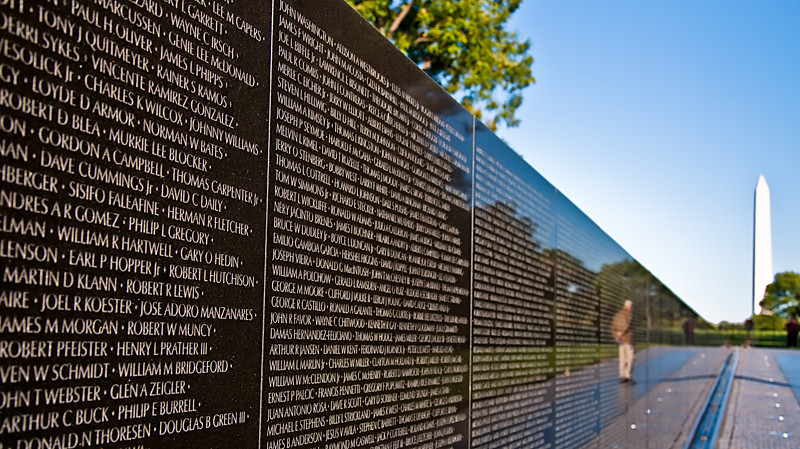
This is a very good account of the military and the spirit of service of the post-war baby boomers by the former President of Dartmouth College who is a bit older than me and served in the Marine Corps. Born in 1945 my peers were the most likely to serve in Vietnam. Those who didn't, like me, performed overseas service pale by comparison in the Peace Corps.
At a wake (appropriately) last week I met Sean - a man ten years younger than me - who had served during the Carter years. "Morale was low - we had just lost a war, and a Democrat was President" he told me. He was surprised when I mentioned that Carter had served seven years in the Navy and was qualified for command of a submarine.
The reception of returning soldiers was not good, he said. Victories lead to victory parades, I replied. But beyond that those of us who were opposed to the war did not lionize those who had fought it. We were more likely to point to the draftees whose lives were lost, and the reluctant service of those who enlisted to avoid being "grunts" on the front lines of a jungle war of dubious purpose.
Of course many of us volunteered, as I might have done if I had not been denied the Navy ROTC appointment for which I was qualified but then rejected because my nearsightedness disqualified me for pilot's duty. I explained to no avail that I wanted to be aboard a ship.
The deepest emotional meaning of the war for me is the names of two friends on the Wall: quarterback Mike Cunnion and sprinter Bob Donovan who flunked out after freshman year in 1964 and soon died in combat. When I am in Washington I visit the Vietnam Veterans Memorial to again find their names. Wasted lives in an ill-conceived war is the message for me. - gwc
The Baby Boomer War - The New York Times
by James Wright
Of all the tropes about the Vietnam War, one stands out far above the rest in American memory: It was the baby boomers’ war. By the spring of 1967, most American soldiers being killed in combat had been born in 1946 or after.
To understand the war, we have to understand what motivated that generation of Americans not only to protest but also to fight, and later to seek some sort of closure. Wars are far easier to initiate than to conclude. And for those who serve, the memories endure long after the fighting stops.
At his inauguration in January 1961, President John Kennedy said, “Let every nation know, whether it wishes us well or ill, that we will pay any price, bear any burden, meet any hardship, support any friend, oppose any foe to assure the survival and the success of liberty.”
Those born after the boomers may find it quaint to read about a president asking citizens to sacrifice, to “pay any price.” Nonetheless, their parents or grandparents, the baby boomers, will most likely remember a brief shining moment of energized promise and of unfulfilled dreams. It was the echo of that call, just a few years later, that motivated hundreds of thousands of young men to enlist for Vietnam, for the chance to ensure “the success of liberty” — and many others back home, at least at the outset, to support the fighting.
No comments:
Post a Comment